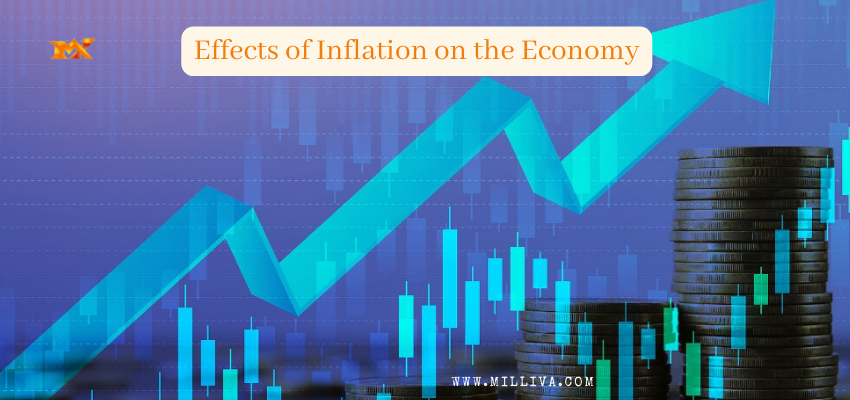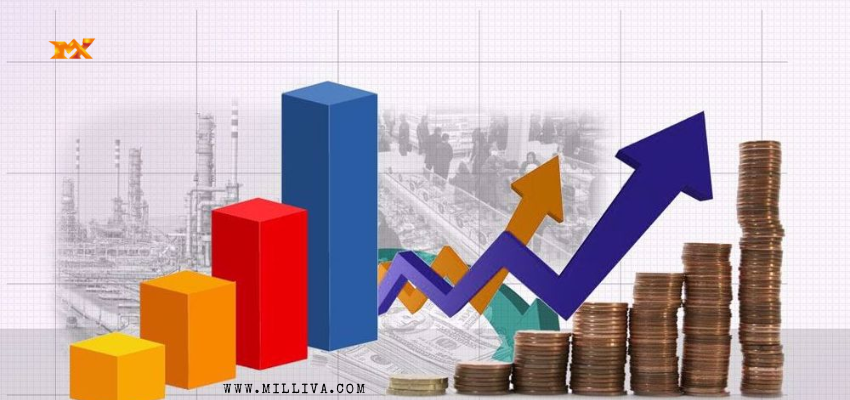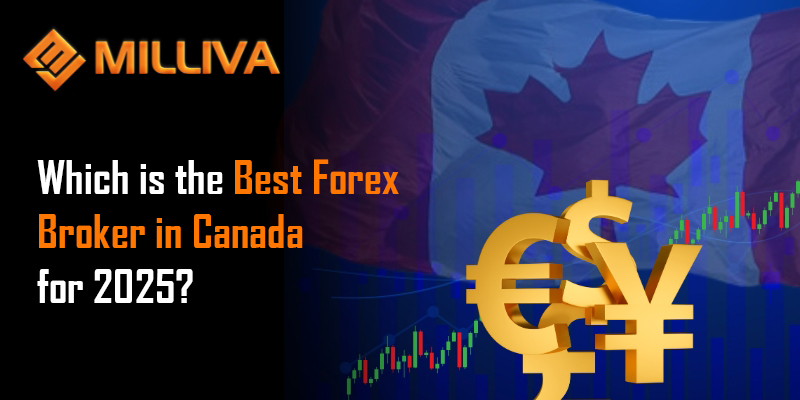Effects of Inflation on the Economy

![]()
Let’s take a thorough look at inflation in this blog, including what it is, how it affects the economy, why is inflation important, and how to use inflation data to make trading decisions. When deciding where to put their money, investors take into account a variety of criteria. The economic health of the nation they want to invest in is one of the most crucial things they take into account.
They take into account a multitude of data variables, including the unemployment rate, consumer and business confidence, interest rates, and inflation, among others, to assess the performance or health of an economy. Simply put, they want to invest in a nation that is producing jobs, where confidence is high, and where inflation is under control.
What is Inflation?
Inflation is the rising price of a good or service. The fundamental worth of the local currency changes when inflation rates rise. For instance, if you have $100, you can purchase a complete basket of groceries from a nearby retailer. Therefore, if the rate of inflation grows by 5% in a year, $100 will not be enough to fill your shopping basket.
Inflation that is kept under control in a country is crucial if businesses want to increase their margins. The businesses can keep adding employees as long as their margins increase. The complete opposite of inflation is deflation. In this circumstance, product prices are going down. If the cost of gas drops by $10 in a year, consumers can use the money they save to purchase other items.
A rapid pace of deflation, however, poses a threat to an economy since businesses would experience lower profits per unit, difficulty repaying debts, and layoffs that will raise the unemployment rate at the national level.
The idea of hyperinflation is another crucial one. This occurs when a nation’s inflation rate increased by more than 50% in a single month. This is a risky scenario since it devalues the local currency and makes people unable to afford common goods.
Another idea is something called stagflation. In this case, a country’s decreasing economic growth is being accompanied by rising unemployment and high inflation rates. This frequently occurs in nations that export oil and mainly takes place when the price of petroleum increases. As a result, these nations experience weak growth and rising product prices. The latter emerges as a result of the growing cost of production and transportation due to crude.
Causes of Inflation
A circumstance where the central bank of a nation raises the amount of money in circulation is known as a “money supply.” For instance, Zimbabwe produced money to spur economic expansion. Hyperinflation as a result rendered the local money worthless.
The decisions taken by central banks are referred to as monetary policy. Lowering interest rates increases inflation by increasing the amount of money in circulation. On the other hand, tightening entails reducing the money supply. In an effort to increase exports, the central bank can also discount its currency. By doing this, the cost of things can be raised.
Countries may raise product taxes to finance investments. The cost of the goods usually increases as a result. Depending on the dynamics of supply and demand, goods prices can change up and down. Consumer prices may rise as a result of a limited supply of important commodities like crude oil.
Higher inflation depends on the growth of an economy. The Philips curve is often used to explain this. It says that the rate of inflation tends to rise when the unemployment rate is falling.
Important Measures of Inflation
Traders utilize the economic calendar to determine the rate of inflation. They examine a lot of economic indicators in the calendar. An economy can be seen in the consumer price index, which displays the average change in the price of goods and services. Simply put, this is a figure that displays changes in the average price of goods and services, eliminating volatile items like energy and food.
This is a measurement of the shift in the prices of the items that domestic producers obtain. Data on retail sales demonstrates the expansion of this industry nationwide. Rising sales indicate that inflation is most likely to increase.

Why the Inflation Rate Matters to Traders
When deciding whether to purchase or sell a currency, traders consider the rate of inflation to be of utmost importance. This is significant mostly because of how central banks can affect a nation’s interest rates.
The maintenance of product price stability in a nation is one of the duties of the central bank. When the rate of inflation rises, the central bank frequently takes action to boost interest rates. They do this to affect the overall flow of cash. This is mostly because more people and businesses will refrain from borrowing when interest rates are high. The local currency usually strengthens as a result of the limited supply.
How to Trade Using Interest Rates
The rate of inflation is quite essential and has many applications for traders who specialize in fundamental research. First, traders predict that a high rate of inflation will result in high interest rates when the jobs data reflect a declining unemployment rate and an overall improvement in employment. A stronger currency and greater bond yields might result from high interest rates. On the other hand, as investors switch from equities to bonds, higher bond yields result in lower stock prices. You can short the nation’s equities and indices as well as buy its currency.
Inflation Numbers as an Opportunity
The best feature of the Forex market is the ability to either purchase or short currency pairings. When you purchase a currency pair, you are betting that the base currency’s value will rise relative to the quote currency. You expect the value of the base currency to decline when you short it. Therefore, you can use the inflation statistics to decide on the future of the currency pairs with confidence.

Visit us on: www.milliva.com





